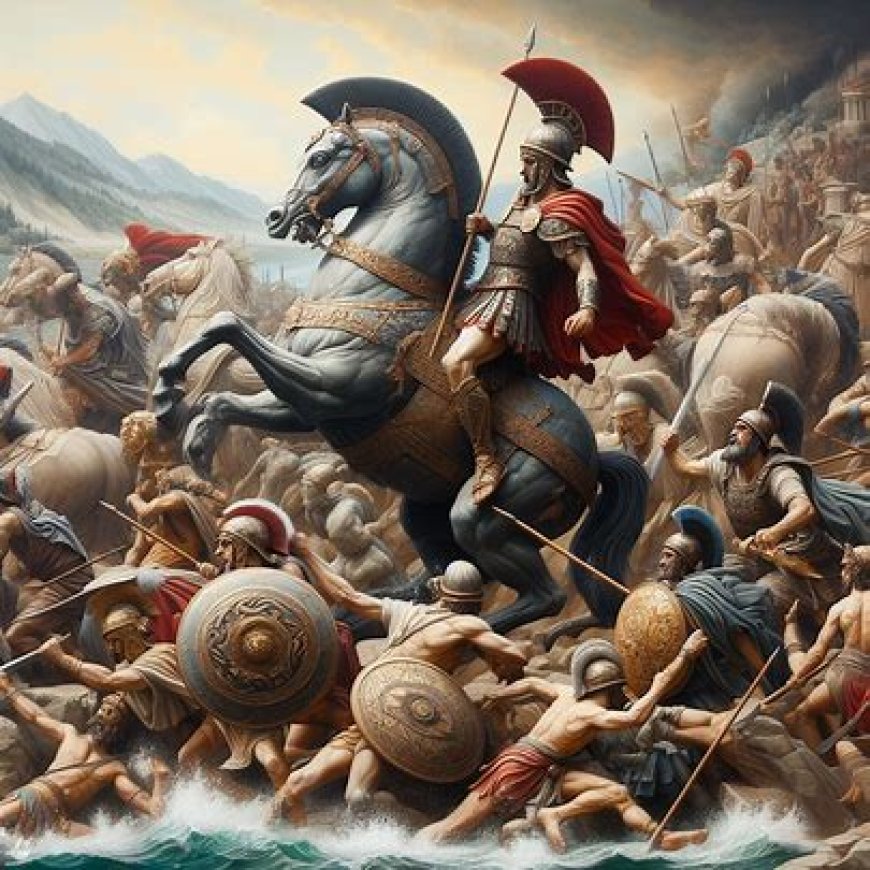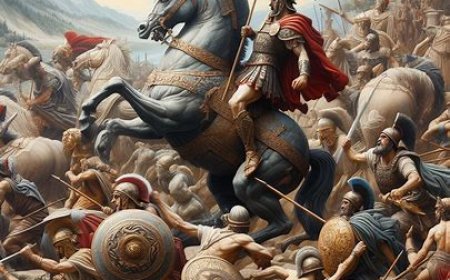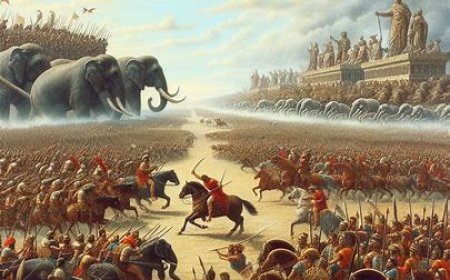The Trojan War: The Destruction of Civilization Because of Women
In today's era of advanced technology, the Trojan Horse strategy has inspired the creation of Trojan viruses in the context of computer security. This refers to a type of malicious software that disguises itself as a useful program or file but, in reality, infiltrates and damages computer systems without the user's knowledge.

The Trojan War, a famous mythological conflict, took place in the city of Troy and originated from the gods' dispute that led to the abduction of Helen, the wife of King Menelaus of Sparta, by Prince Paris of Troy. Menelaus called upon his allies from across Greece, forming a large alliance of heroes such as Achilles, Agamemnon, Odysseus, and Ajax to retrieve Helen. This conflict lasted for ten years and included the famous strategy of the Trojan Horse, which became the key to Greek conquest. The Greek forces infiltrated Troy inside the giant wooden horse, opened the city gates, and ended the war with Greek victory and the destruction of Troy. The dramatic climax of this war was the death of Hector, Troy's main hero, at the hands of Achilles. The Trojan War had a significant impact on Greek mythology, reflecting themes of morality, honor, and the consequences of human actions. Although the historical truth of this war remains debated, its story remains an integral part of ancient Greek cultural heritage.
Here is the chronological timeline of the Trojan War based on ancient Greek mythology:
1. Discord Among the Gods (Mythology): Goddesses Hera, Athena, and Aphrodite competed for the title of the most beautiful. Prince Paris of Troy chose Aphrodite after being promised the love of the world's most beautiful woman, Helen.
2. Abduction of Helen: Paris abducted Helen, the wife of King Menelaus of Sparta, and brought her to Troy, triggering Menelaus' anger and a plea for help.
3. Call for Aid: Menelaus called upon his allies across Greece to help retrieve Helen. A large alliance was formed, including heroes such as Achilles, Agamemnon, and Odysseus.
4. First Battle: The Greek fleet sailed to Troy to initiate the war. The first landing of Greek forces and battles near Troy occurred.
5. Ten Years of Battle: The war lasted for ten years with continuous battles, resulting in the deaths of heroes like Protesilaus, Achilles, and Hector.
6. Use of the Wooden Horse: One of the most famous strategies in Greek mythology occurred. The Greeks created a giant wooden horse filled with trained warriors. They snuck the horse into Troy, opening the city gates at night.
7. Destruction of Troy: Greek forces hidden in the wooden horse emerged, opened the gates, and allowed other Greek forces to enter Troy. Troy was destroyed, and many of its inhabitants were killed or enslaved.
8. Death of Hector: One of the most dramatic moments in the war was the death of Hector, the main hero of Troy, killed by Achilles.
In the mythological story, the winner of the Trojan War was the Greek forces who successfully conquered the city of Troy through the creative strategy of the Trojan Horse. This wooden horse was presented as a false "gift" to the inhabitants of Troy, and when the horse was accepted and brought into the city, Greek forces hidden within it emerged at night, opened the city gates, and allowed other Greek forces to enter and besiege Troy.
The Trojan War had a significant impact on Greek mythology, reflecting themes of morality, honor, and the consequences of human actions. Although the historical truth of this war remains debated, its story remains an integral part of ancient Greek cultural heritage.
In today's era of advanced technology, the Trojan Horse strategy has inspired the creation of Trojan viruses in the context of computer security. This refers to a type of malicious software that disguises itself as a useful program or file but, in reality, infiltrates and damages computer systems without the user's knowledge.
(source: chatgpt)
What's Your Reaction?






















































